EU Will Be Cautious With a New Minsk Agreement
Adelina Marini, February 12, 2015
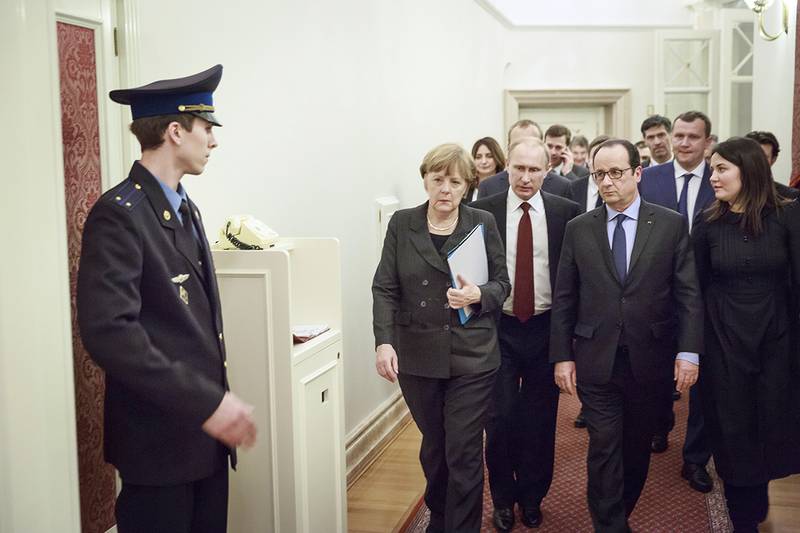 If there is a peace agreement in Minsk today then the discussion on Ukraine and Russia later in the day between the leaders of the 28 EU member states will be an easy one. But if the peace talks fail, it is possible this to prolong the summit significantly, said a well placed EU source. The deteriorating by the hour situation in eastern Ukraine is one of the hot topics on the agenda of the informal European Council which was initially planned to deal with the future of the euro area. But still, if there is an agreement in Minsk, although the leaders will welcome it, they will be cautious because of the bitter experience with the previous one. The leaders of France, Germany, Ukraine and Russia gathered in the Belarus capital yesterday evening to try and reach a new peace agreement in the so called "Normandy format", named after the meeting of the leaders of these countries in the margins of the celebrations last June of the 70th anniversary of the allies' landing in Normandy during World War II.
If there is a peace agreement in Minsk today then the discussion on Ukraine and Russia later in the day between the leaders of the 28 EU member states will be an easy one. But if the peace talks fail, it is possible this to prolong the summit significantly, said a well placed EU source. The deteriorating by the hour situation in eastern Ukraine is one of the hot topics on the agenda of the informal European Council which was initially planned to deal with the future of the euro area. But still, if there is an agreement in Minsk, although the leaders will welcome it, they will be cautious because of the bitter experience with the previous one. The leaders of France, Germany, Ukraine and Russia gathered in the Belarus capital yesterday evening to try and reach a new peace agreement in the so called "Normandy format", named after the meeting of the leaders of these countries in the margins of the celebrations last June of the 70th anniversary of the allies' landing in Normandy during World War II.
According to some, the chances for such an agreement are null because the previous Minsk agreement of September last year is not respected. The leaders of the same "Normandy" format agreed back then on a nine-point memorandum which foresees the creation of a 30 km buffer zone, a flight ban for military air planes over parts of eastern Ukraine, withdrawal of the foreign mercenaries on both sides, etc. Since then, however, there has been no progress on the implementation of the agreement. Unlike many, Russian President Vladimir Putin was an optimist on Wednesday. He saw a 70% chance of a peace agreement which will again include a ceasefire, a creation of a demilitarised zone and withdrawal of the heavy weapons.
It is not clear what his optimism is based on but Ukraine's President Petro Poroshenko will join the leaders during their informal summit on 12 February. He will brief the prime ministers and presidents of the 28 member states together with Angela Merkel and Francois Hollande of the developments in Ukraine. According to a senior EU source, the fact that Mr Poroshenko will attend the summit aims to send a strong signal that Ukraine is a victim of aggression. The EU foreign ministers approved earlier the expansion of the ban list with additional names of separatists in eastern Ukraine and of people who support them in Russia. Those are 19 people and 9 entities involved in activities against the territorial i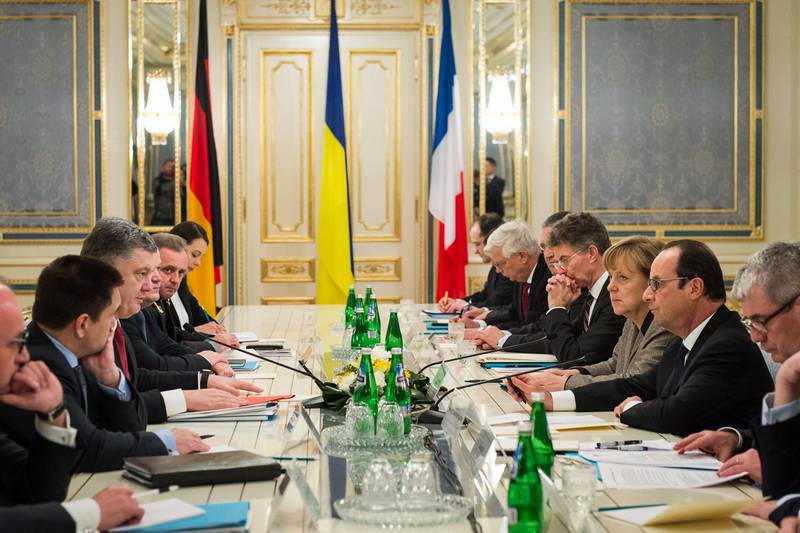 ntegrity of Ukraine. The new measures will not enter into force until 16 February awaiting the outcome of the Minsk talks.
ntegrity of Ukraine. The new measures will not enter into force until 16 February awaiting the outcome of the Minsk talks.
EU is reluctant to undertake new measures but if the peace talks fail the Union will have to take some difficult decisions for which there is no unanimity among the 28. At their regular spring summit on 19-20 March in Brussels they will have an in-depth discussion on the EU-Russia relations in the context of the need of a comprehensive strategy for Russia. This will be the first very big test for the European unity.
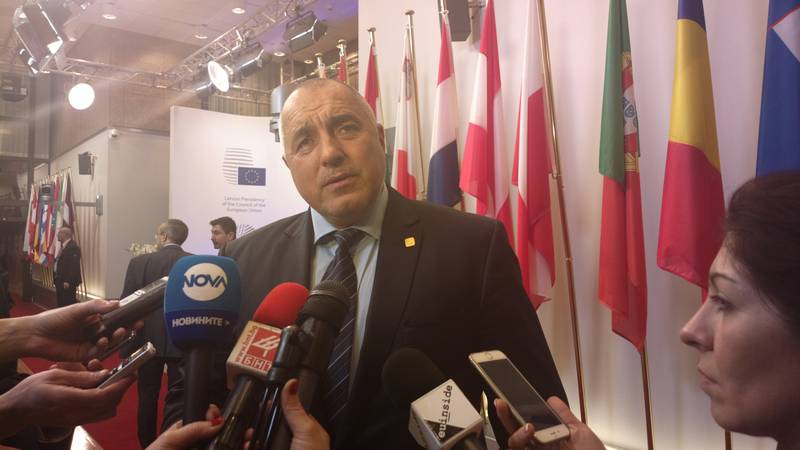 Boyko Borissov | © euinside
Boyko Borissov | © euinside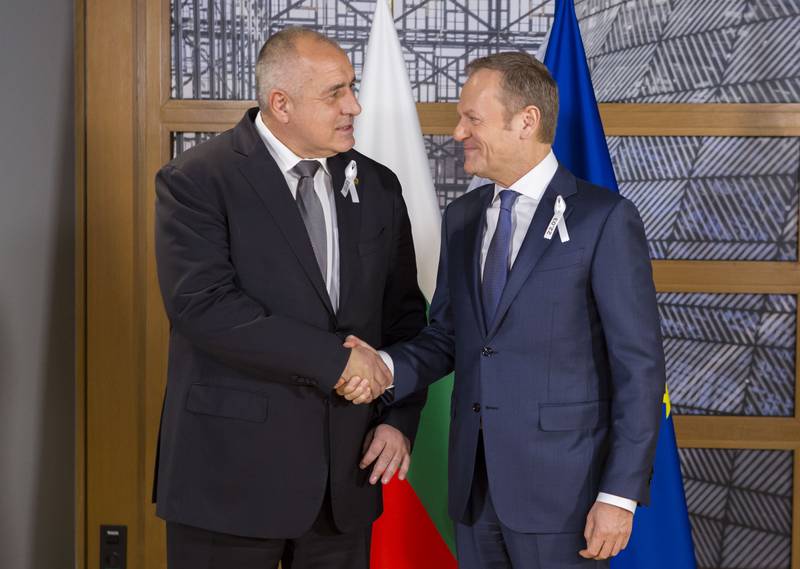 Boyko Borissov, Donald Tusk | © Council of the EU
Boyko Borissov, Donald Tusk | © Council of the EU Boris Johnson | © Council of the EU
Boris Johnson | © Council of the EU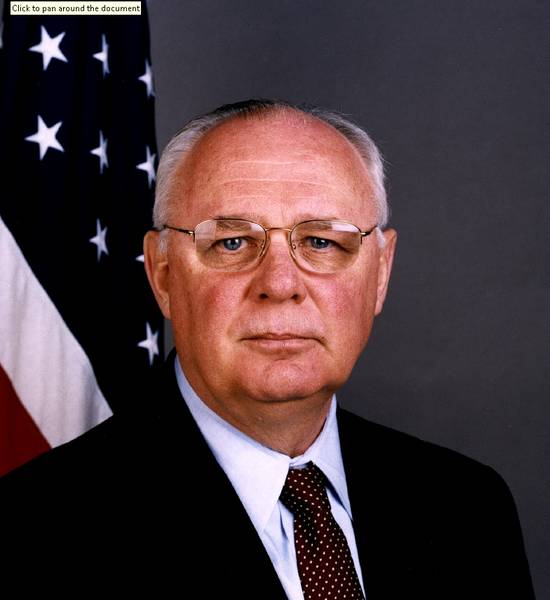 James W. Pardew | ©
James W. Pardew | ©